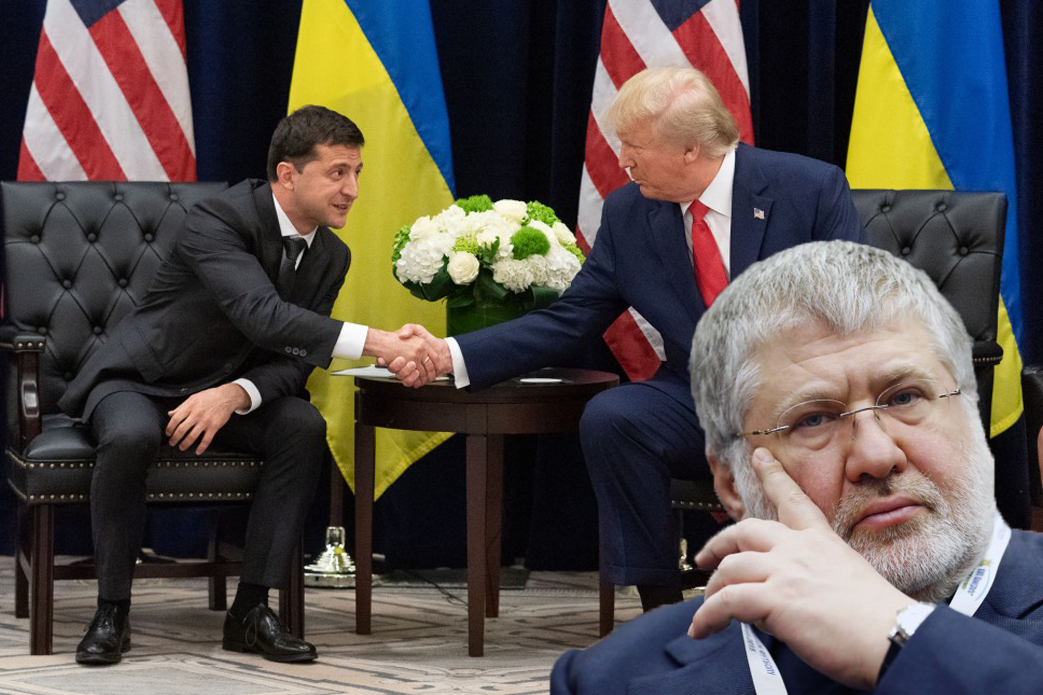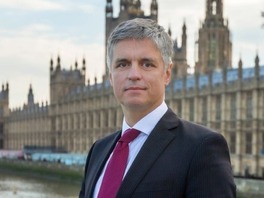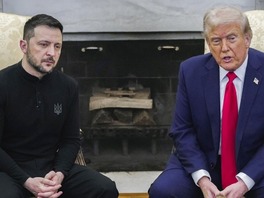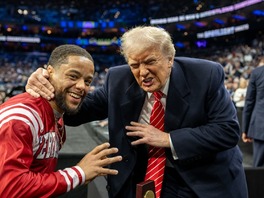The U.S. has accused Ihor Kolomoisky, a scandalous Ukrainian oligarch, of embezzlement and money laundering. The US Department of Justice has officially filed charges against the man, accusing him of embezzling billions of dollars from PrivatBank and laundering these funds in America.
Kolomoisky’s business partner Gennadiy Bogolyubov faces similar charges.
The Department of Justice filed two civil suits in the U.S. District Court for the Southern District of Florida, alleging that Kolomoisky and Bogolyubov laundered money through bank accounts of fake companies, primarily in the Cypriot branch of PrivatBank, and then transferred these funds to the U.S.
According to the lawsuit, Kolomoisky’s commercial real estate in Louisville, Kentucky, and Dallas, Texas, was also acquired with illegal funds and is therefore subject to confiscation under the federal anti-money laundering law.
It’s worth noting that it is not the first year that American law enforcers have been investigating Ihor Kolomoisky's actions. It’s widely perceived that the US investigations served as a reason for Kolomoisky to move from Geneva to Israel, where he’s a citizen. However, the oligarch reentered Ukraine after Volodymyr Zelensky had won the presidential election in 2019. While Kolomoisky’s relations with Petro Poroshenko didn’t work out, to put it mildly, he had a far more cooperative connection with President Zelensky. According to unofficial information, Kolomoisky was seriously afraid that he could have been extradited to the United States had he remained in Israel – although Israel doesn’t extradite its citizens to other states.
Will they catch him in Ukraine?
Ukraine and the U.S do not have an agreement on extradition (it does not mean that extradition is impossible altogether, though). For this reason, in particular, the U.S. did not extradite former Prime Minister Pavlo Lazarenko, who was convicted in the US for money laundering, to Ukraine.
As of today, it’s unclear if Ukraine and the U.S. shall cooperate in light of Ihor Kolomoisy’s prosecution.
"We should hardly expect that the situation with accusations against a businessman, even though an influential one, may become a foreign policy factor," an international lawyer Yevhen Oharkov told Apostrophe.
"The American court system is quite good with convictions, especially when it comes to those who have violated the US law,” he added.
At the same time, Oharkov believes that it’s highly unlikely that American investigators would be able to interrogate Kolomoyskyi or bring him to the U.S. territory in the nearest future – not "unless he wants it himself", which is quite doubtful.
According to the expert, "Most likely, the American investigation and, subsequently, the trial will be aimed at getting compensation for material damage.”
The U.S. might also impose individual, financial sanctions against Kolomoisky. For example, 'assets located in the territory of the United States and other states with which the United States has international legal relations could be seized and recovered in favor of the American state'.
As the U.S. has legal relations with Ukraine, Kolomoisky’s Ukrainian assets might also be targeted.
"There is an international convention that requires our states to legally assist one another in enforcing court decisions in the territory of these states. This convention could be used to recover Kolomoisky’s assets,” Oharkov explained.
However, it will only be possible to understand the development of the situation when at least the decision of the court of first instance appears, "without mentioning the fact that it is likely to be appealed and possibly undergo cassation".
The PrivatBank Case
It is obvious that the situation for Ihor Kolomoisky will become more complicated in Ukraine as well.
After Volodymyr Zelensky's victory in the presidential election, it seemed that Kolomoysky would not only regain what he had lost in previous years, but would also expand his influence in Ukraine. First, it’s the above-mentioned PrivatBank, which he and Gennadiy Bogolyubov owned until December 2016, i.e. before nationalization due to his serious financial problems.
The oligarch tried through the courts (in fact, he continues to try now) to obtain recognition of the illegal nationalization of his banking brainchild, which could lead to the return of PrivatBank under his control or, more likely, payment of a large monetary compensation, which he himself estimated at 2 billion dollars.
However, the Verkhovna Rada, under pressure from Ukraine's international partners, including the International Monetary Fund (IMF), passed the law prohibiting the return of nationalized financial institutions to their former owners, and several court rulings on PrivatBank were not in favor of the oligarch.
The situation around PrivatBank is unlikely to change in favor of Ihor Kolomoyskyi after the recent events in the U.S.
The West
It’s worth nothing that Volodymyr Zelensky, at least in public, does not demonstrate much loyalty to the person who is said to have helped him become president.
However, Kolomoisky will not abandon his attempts to gain support from the authorities, utilizing different groups of influence in the government and, in particular, in the President’s Office.
Despite the difficulties caused by the persecution in the USA, the oligarch is likely to become even more aggressive in his actions.
According to Maksym Stepanenko, the ICPS domestic policy expert, "We shall see an intensification of the confrontation in the information field with the West. Kolomoisky’s destabilizing activity on the territory of Ukraine will most likely only increase. The caught beast is only getting more dangerous."






